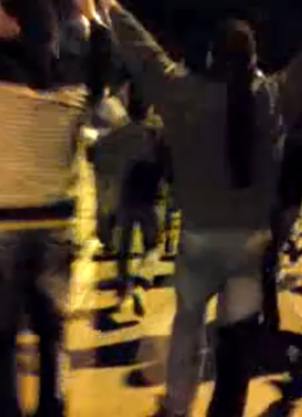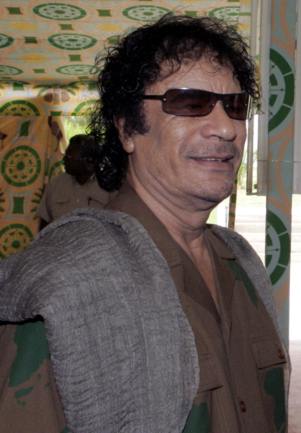|
Libya Politics | Human rights | Economy - Development Libya economy reveals basis for protests
Libya is the richest North African country. Counted in GDP per capita, Libya indeed is on an Eastern European level.
Libya's vast hydrocarbon sector creates an immense wealth, with government now having foreign assets of US$ 105 billion - or US$ 16,000 per Libyan citizen. But it does not create many jobs. A few Libyan businessmen, close to the Ghaddafi regime, and some Libyan engineers and oil workers make their living from oil and gas production. But foreign businessmen, engineers and workers are even deeper involved in the sector. Libyan leader Ghaddafi for years has sought to diversify the economy by sudden launches of massive investments in giga-projects. A "Great Man-made River" was to create agricultural lands in the desert. First-class roads and high-speed trains were to cross the desert country in all directions to boost trade. Large tracts of Libya's Mediterranean coast have been set aside for massive tourist complexes. These attempts to boost the non-oil sector have given some results on the paper. For most of the last five years, new IMF figures show, the non-oil sector has been growing much faster - with growth rates from 6 to 10 percent - than the hydrocarbon sector. It could seem that a diversification of Libya's economy was in the making, creating job opportunities for ordinary Libyans. Not so. Most of the Libyan leader's megalomaniac projects are poorly assessed schemes not based in the development needs of the country or its population. Bluntly, they are mostly a waste of billions of dollars. More importantly, they do not create work for ordinary Libyans. The giant projects are put to international tender, with foreign companies employing engineers and even bringing in the workforce to do the constructions. Even the food for these foreign workers is mostly imported. The great railway scheme currently being implemented sees the sparsely populat
Yesterday's IMF report, noting the high unemployment rate, in clear language says that the unrest across North Africa has not reached Libya "so far." According to the IMF, government was meeting these challenges by abolishing "taxes and custom duties on locally-produced and imported food products." Further, it "announced the creation of a large multi-billion dollar fund for investment and local development that will focus on providing housing for the growing population," according to the IMF. New policies were aiming at "adapting the labour force to the economic transformation." But among large parts of the Libyan population, the modest reform scheme introduced by Mr Ghaddafi - in power since 1969 - come too late and sound like empty words. Only one year ago, Libyan labour training chief Amin Mansour Amine had announced unemployment would be reduced by 50 percent during 2010 by the country's great infrastructure projects. Nothing however happened. Meanwhile, the great social problems are adding up to political frustrations and an opposition to the dictatorship, especially in Libya's second city Benghazi. Inspired by the revolutions in Tunisia and Egypt, also a growing number of Libyans only see a solution in the total collapse of the Ghaddafi regime. The first major protests against the Ghaddafi regime consequently were organised in Benghazi today. Several thousand protesters demanded the resignation of Mr Ghaddafi, but were met with riot police dispersing the crowds. By staff writers © afrol News - Create an e-mail alert for Libya news - Create an e-mail alert for Politics news - Create an e-mail alert for Human rights news - Create an e-mail alert for Economy - Development news
On the Afrol News front page now
|
front page
| news
| countries
| archive
| currencies
| news alerts login
| about afrol News
| contact
| advertise
| español
©
afrol News.
Reproducing or buying afrol News' articles.
You can contact us at mail@afrol.com










